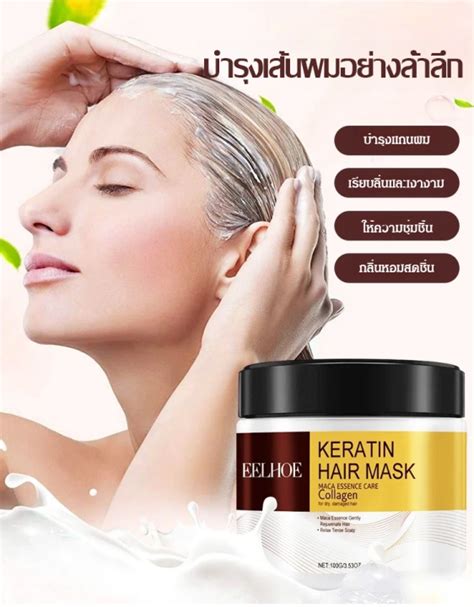Introduction
Protein is an essential building block for healthy hair. It provides strength, elasticity, and shine. However, chemical treatments, heat styling, and environmental factors can deplete protein levels, leaving hair brittle, dull, and prone to breakage.

A hair care protein treatment is a professional or DIY treatment that replenishes protein in the hair shaft, restoring its strength, vibrancy, and overall health. This article explores the benefits, types, and application methods of hair care protein treatments, empowering you to achieve lustrous, resilient hair.
Benefits of Hair Care Protein Treatments
- Increased Strength and Elasticity: Protein treatments strengthen and fortify the hair shaft, reducing breakage and split ends.
- Improved Moisture Retention: Proteins bind to the hair’s surface, creating a protective layer that locks in moisture and prevents dryness.
- Enhanced Shine and Clarity: Protein treatments smooth the hair cuticle, leaving it with a glossy, vibrant appearance.
- Protection against Damage: Protein treatments buffer the hair against environmental stressors, such as heat and pollution, minimizing damage.
- Reduced Frizz and Tangling: Protein helps to tame frizz and detangle hair, making it more manageable and easier to style.
Types of Hair Care Protein Treatments
Salon Treatments
- Keratin Treatments: Keratin is a natural protein found in hair. Keratin treatments infuse the hair with concentrated keratin, smoothing it, reducing frizz, and providing long-lasting results.
- Olaplex:** Olaplex is a patented bonding treatment that repairs broken disulfide bonds within the hair shaft, restoring strength and preventing breakage.
DIY Treatments
- Egg Mask: Eggs are a rich source of protein and biotin, which nourishes and strengthens the hair.
- Yogurt Mask: Yogurt contains lactic acid, which helps to break down protein and improve absorption.
- Gelatin Treatment: Gelatin is a collagen-derived protein that strengthens and volumizes the hair.
How to Apply a Hair Care Protein Treatment
Salon Treatments
- Cleanse and Prepare: Wash the hair with a clarifying shampoo to remove any buildup.
- Apply Treatment: The stylist will apply the protein treatment as directed by the manufacturer’s instructions.
- Process: The treatment will be left on for a specific amount of time, typically 30-60 minutes.
- Rinse and Style: Rinse the hair thoroughly and style as usual.
DIY Treatments
- Prepare Mask: Mix the protein-rich ingredients (e.g., eggs, yogurt, gelatin) into a paste.
- Apply to Hair: Apply the mask evenly to clean, damp hair, avoiding the scalp.
- Cover and Process: Cover the hair with a plastic cap or shower cap and allow the treatment to process for 20-30 minutes.
- Rinse and Condition: Rinse the hair thoroughly with lukewarm water and condition as usual.
Tips and Tricks
- Identify Hair Type: Determine if your hair is low-, medium-, or high-porosity to select the most suitable protein treatment.
- Test a Strand: Apply a small amount of the treatment to a strand of hair to test its effectiveness and prevent over-proteination.
- Frequency: Protein treatments can be applied every 4-8 weeks, depending on hair damage and porosity.
- Avoid Over-Proteination: Excessive protein can make hair brittle and prone to breakage. Limit treatments to once a month to maintain protein balance.
- Protect Treated Hair: Use sulfate-free shampoos and conditioners, and minimize heat styling to preserve the benefits of the treatment.
Comparison of Salon vs. DIY Protein Treatments
| Feature | Salon Treatment | DIY Treatment |
|---|---|---|
| Professional Application | Yes | No |
| Results | Typically more effective | Varies, depending on ingredients and application |
| Duration | Longer, up to 3 months | Shorter, up to 4 weeks |
| Cost | Higher | Lower |
| Convenience | Requires salon visit | Can be done at home |
Case Studies and Statistics
- A study published in the Journal of Cosmetic Dermatology found that keratin treatments can increase hair elasticity by up to 50%.
- According to the American Academy of Dermatology, approximately 35% of Americans experience hair breakage due to chemical treatments or heat styling.
- A survey conducted by the Hair Care Industry Association revealed that 70% of women who have had a protein treatment report improved hair strength and reduced breakage.
Conclusion
Hair care protein treatments offer a multitude of benefits for restoring and revitalizing hair health. Whether you choose a salon or DIY treatment, replenishing protein in the hair shaft can significantly improve strength, elasticity, moisture retention, and shine. By understanding the types, application methods, and benefits of protein treatments, you can empower yourself to achieve the luxurious, healthy hair you’ve always dreamed of.
